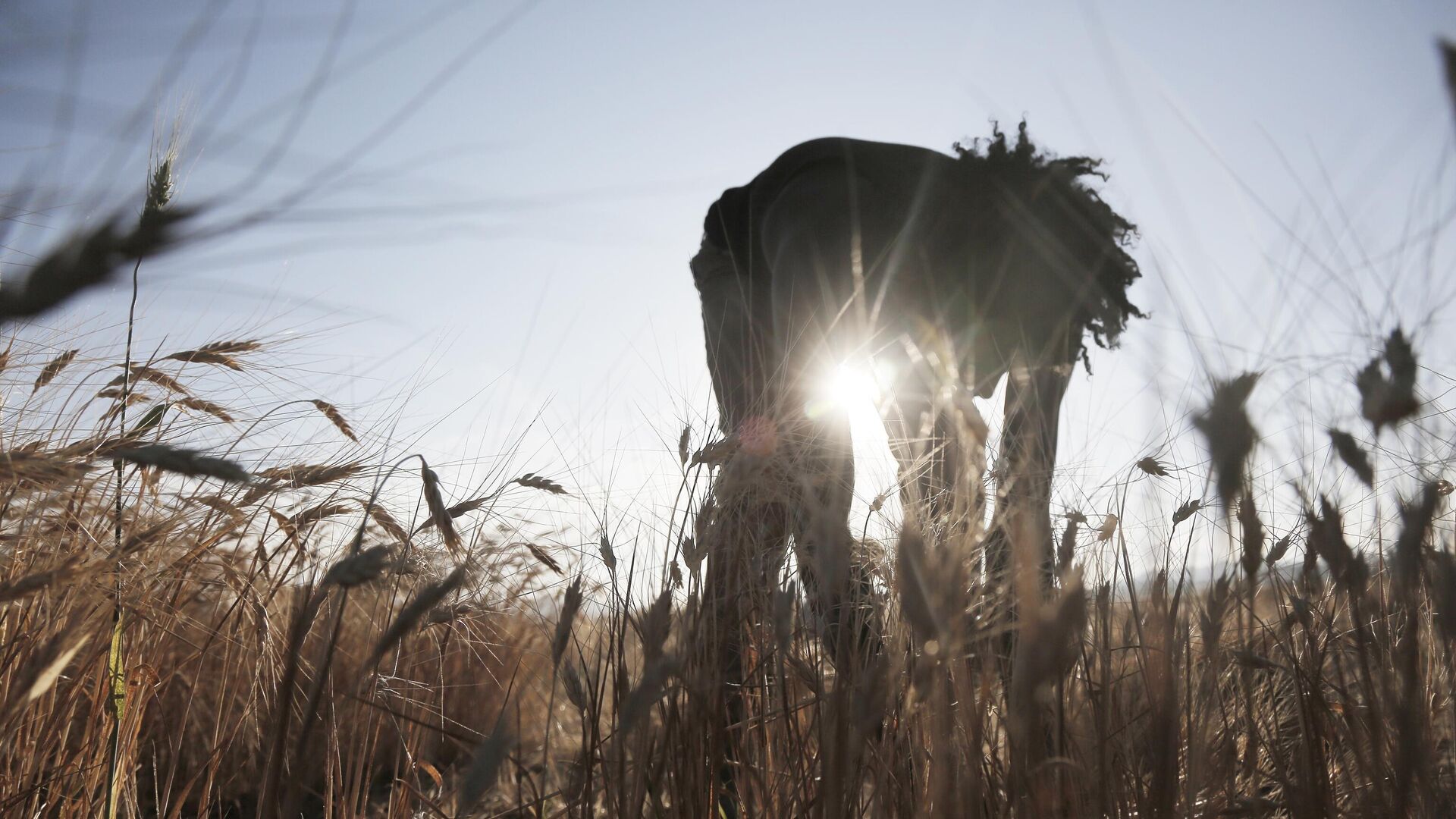https://en.sputniknews.africa/20250219/ethiopia-actively-pursuing-food-self-sufficiency-through-agricultural-policies-authorities-say-1070717459.html
Ethiopia Actively Pursuing Food Self-Sufficiency Through Agricultural Policies, Authorities Say
Ethiopia Actively Pursuing Food Self-Sufficiency Through Agricultural Policies, Authorities Say
Sputnik Africa
Africa faces a food crisis, with over 150 million people at risk of increased hunger due to the global impact of the Ukraine conflict, climate change, economic... 19.02.2025, Sputnik Africa
2025-02-19T10:07+0100
2025-02-19T10:07+0100
2025-02-19T10:57+0100
sub-saharan africa
ethiopia
africa
east africa
food
food security
development
economic growth
agriculture
wheat
https://cdn1.img.sputniknews.africa/img/07e9/02/13/1070717254_0:86:3072:1814_1920x0_80_0_0_95da5ceaf810bd3249aec851a4e8bb70.jpg
Ethiopia is actively pursuing food self-sufficiency through agricultural policies, challenging perceptions of African dependency, the Office of Prime Minister of Ethiopia said, noting that the country remains committed to achieving food security, which is essential for its farmers and the nation as a whole.The strategy centers on wheat production through expanded irrigation, improved seeds, and modern farming, transforming Ethiopia from an importer to a self-sufficient producer. This transformation from an importer to a self-sufficient wheat producer is supported by key initiatives in irrigation, sustainable agriculture, policy reform, and farmer support programs.By becoming wheat self-sufficient, Ethiopia no longer needs to rely on imports, eliminating the need for an annual $1 billion in imports. However, limited humanitarian imports may still occur.Food self-sufficiency is crucial for Ethiopia and Africa's empowerment, building resilience and promoting growth. It safeguards against disruptions and demonstrates agricultural independence, serving as a model for other African nations.
https://en.sputniknews.africa/20250218/ethiopia-is-one-of-russias-key-partners-in-africa-russian-upper-house-speaker-says-1070712254.html
ethiopia
africa
east africa
Sputnik Africa
feedback@sputniknews.com
+74956456601
MIA „Rossiya Segodnya“
2025
News
en_EN
Sputnik Africa
feedback@sputniknews.com
+74956456601
MIA „Rossiya Segodnya“
Sputnik Africa
feedback@sputniknews.com
+74956456601
MIA „Rossiya Segodnya“
ethiopia, africa, east africa, food, food security , development, economic growth, agriculture, wheat, production, independence, farmers
ethiopia, africa, east africa, food, food security , development, economic growth, agriculture, wheat, production, independence, farmers
Ethiopia Actively Pursuing Food Self-Sufficiency Through Agricultural Policies, Authorities Say
10:07 19.02.2025 (Updated: 10:57 19.02.2025) Ekaterina Shilova
Writer / Editor
Africa faces a food crisis, with over 150 million people at risk of increased hunger due to the global impact of the Ukraine conflict, climate change, economic slowdowns, and COVID-19 fallout, according to the Observer Research Foundation.
Ethiopia is actively pursuing food self-sufficiency through agricultural policies, challenging perceptions of African dependency, the Office of Prime Minister of Ethiopia said, noting that the country remains committed to achieving food security, which is essential for its farmers and the nation as a whole.
The strategy centers on wheat production through expanded irrigation, improved seeds, and modern farming, transforming Ethiopia from an importer to a self-sufficient producer. This transformation from an importer to a self-sufficient
wheat producer is supported by key initiatives in irrigation, sustainable agriculture, policy reform, and farmer support programs.
By becoming wheat self-sufficient, Ethiopia no longer needs to rely on imports, eliminating the need for an annual $1 billion in imports. However, limited humanitarian imports may still occur.
Food self-sufficiency is crucial for Ethiopia and Africa's empowerment, building resilience and
promoting growth. It safeguards against disruptions and demonstrates agricultural independence, serving as a model for other African nations.


